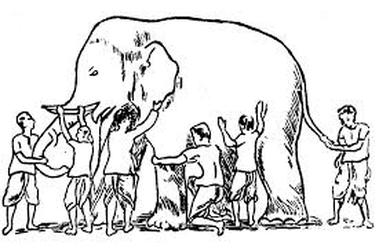Getting Reductionism Right
|
Reductionism is the belief that human behaviour is best explained by breaking it down into smaller constituent parts. Therefore it studies underlying elements.
It is based on the idea of parsimony: that all behaviour should be explained using the most basic (lowest level) principles i.e. the simplest and easiest explanations. Levels of explanation This is the idea that there are different ways of viewing the same phenomena in psychology, where some are more reductionist than others. These explanations vary from those at a lower or fundamental level focusing on basic components or units to those at a higher more holistic multivariable level. Socio-cultural level – this focuses on cultural explanations as well as social explanations of how our social groups affect our behaviour. Therefore, it is about societal constructs and how the individual is a social being, and how these factors influence behaviour. Psychological level – this focuses on psychological explanations of behaviour (e.g. the cognitive approach). Therefore, it is involves looking at the individual person and how what is going on in their head (i.e. cognitions) affects behaviour. Physical level – this focuses on observable behaviour that can physically be measured as explanations of behaviour. Physiological level – this focuses on biological explanations of how hormones, genes, neurochemistry, neurophysiology and evolution affect our behaviour. |
Lesson Materials
Summary of the Debate
|
Reductionism
|
Holism
|
|
Don't worry that the clip says AQA - it is just as relevant to OCR
|
|
| comparing_the_debates.pptx | |
| File Size: | 189 kb |
| File Type: | pptx |
Comparing the Debate with Other Debates
Free Will / Determinism
Determinism and reductionism have similar assumptions about behaviour being predictable and using a scientific approach to explain human behaviour.
Nature/nurture
The nature view is reductionist because it focuses on establishing cause and effect, particularly when investigating genetics. Nurture also tends to be reductionist as it suggests that upbringing and the environment directly cause behaviour, and this ignores the impact of personality.
Individual/ situational explanations
Situational explanations are often hard to quantify when explaining how other people and the environment causes behaviour and so a more holistic approach is needed.
Usefulness
Being reductionist is very useful when trying to develop treatments; but biological treatments may lack effectiveness in the long-term as behaviours return. Being holistic is useful for developing therapies that will work for individuals whereas reductionism helps the development of very measurable treatments
Ethics
Narrowing the cause of behaviour to single variables (reductionism) may cause psychologists to deceive Ps when they are researching or fail to get informed consent.
Psych as a Science
Being scientific tends to make the research and explanations of behaviour reductionist.
Socially sensitive research
Reductionist as often socially sensitive research focuses on a specific trait such as sex or race, as the cause of a behaviour.
Free Will / Determinism
Determinism and reductionism have similar assumptions about behaviour being predictable and using a scientific approach to explain human behaviour.
Nature/nurture
The nature view is reductionist because it focuses on establishing cause and effect, particularly when investigating genetics. Nurture also tends to be reductionist as it suggests that upbringing and the environment directly cause behaviour, and this ignores the impact of personality.
Individual/ situational explanations
Situational explanations are often hard to quantify when explaining how other people and the environment causes behaviour and so a more holistic approach is needed.
Usefulness
Being reductionist is very useful when trying to develop treatments; but biological treatments may lack effectiveness in the long-term as behaviours return. Being holistic is useful for developing therapies that will work for individuals whereas reductionism helps the development of very measurable treatments
Ethics
Narrowing the cause of behaviour to single variables (reductionism) may cause psychologists to deceive Ps when they are researching or fail to get informed consent.
Psych as a Science
Being scientific tends to make the research and explanations of behaviour reductionist.
Socially sensitive research
Reductionist as often socially sensitive research focuses on a specific trait such as sex or race, as the cause of a behaviour.






